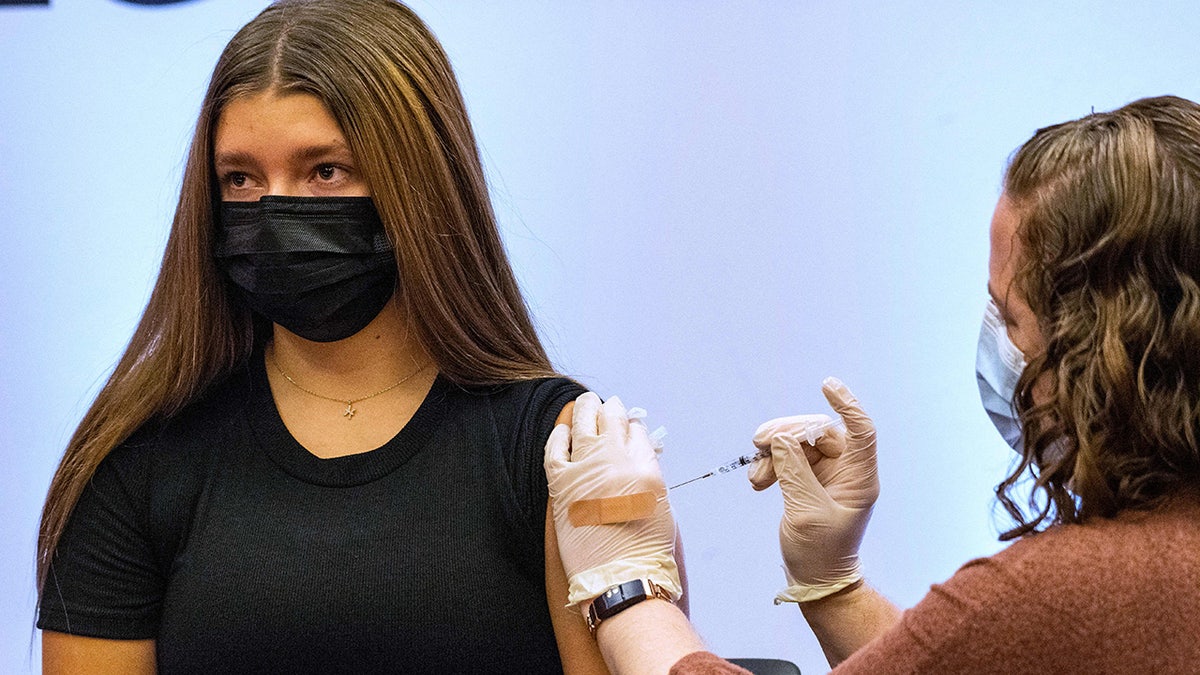Fox News Flash top headlines for February 19
Fox News Flash top headlines are here. Check out what's clicking on Foxnews.com.
Will U.S. residents need a fourth shot of a COVID-19 vaccine?
With a surge of the omicron variant of the coronavirus subsiding around the country, questions continue to swirl about the future of the pandemic in the United States.
While cases and hospitalizations are down, deaths remain high, exceeding past pandemic peaks.
FAUCI SAYS FUTURE REQUIREMENT FOR ADDITIONAL COVID-19 BOOSTERS BEING MONITORED
White House and public health leaders have said that they are cautiously optimistic about current trends and planning for a return to normal. The Centers for Disease Control and Prevention (CDC) is currently considering revising its guidance on masking.
To date, data from the agency shows 92.6 million Americans have received a booster shot of a COVID-19 vaccine and 214.6 million are fully vaccinated.
While the Biden administration has called on the U.S. to stay up to date with COVID-19 vaccinations, health experts continue to worry about impending variants of concern and that booster rates are too low given that the vaccination's efficacy wanes over time – about after four months.

Children 12-15 years old receive a Pfizer-BioNTech Covid-19 vaccine booster at Hartford Hospital in Hartford, Connecticut on January 6, 2022. (JOSEPH PREZIOSO/AFP via Getty Images)
The CDC says COVID-19 vaccine booster shots provide 90% protection against hospitalization.
National Institute of Allergy and Infectious Diseases (NIAID) Director Dr. Anthony Fauci told PBS last week that while there is "substantial waning" for symptomatically recognizable disease, for severe disease at four to five months there is still about a 78% overall protection rate against hospitalization.
He said that number is "pretty good," which is why the CDC is instructing those who are immune-comprised to get their fourth shot now – but that those who are in the general population of immunocompetent people are "pretty good" as the CDC works to follow the durability of that protection.
MASK MANDATES TO BE LIFTED IN NEW MEXICO, WASHINGTON
"If it goes down over the next couple of months, then they will modify the recommendation of when and who should get now the fourth shot. But, in general, for the population level, 78% is pretty good. It likely will go down sometime. We don't know for sure. We're hoping it'll hold tight up there," he said. "But, if it does go down, I think you can expect some modification of the recommendation."
Speaking at the White House COVID-19 Response Team briefing, the president's chief medical adviser said that the potential future requirement for "an additional boost or a fourth shot for mRNA or a third shot for J&J is being very carefully monitored in real time. "
"And, recommendations, if needed, will be updated according to the data as it evolves," he pledged.
Food and Drug Administration (FDA)'s Dr. Peter Marks told The New York Times that scientists "simply don’t have enough data to know that it’s a good thing to do."
The best time for an additional shot could come in the fall, he explained to the publication on Thursday.
"Barring any surprises from new variants, maybe the best thing is to think about our booster strategy in conjunction with the influenza vaccine next fall, and get as many people as possible boosted then," he said.
CLICK HERE TO GET THE FOX NEWS APP
Currently, the CDC recommends booster shots for everyone 12 years and older, five months after getting two doses of the mRNA vaccines or two months after a single dose of the Johnson & Johnson vaccine.
Vaccines remain the best way to protect against COVID-19 and everyone five years and older is now eligible to receive a vaccine.
The Associated Press contributed to this report.


